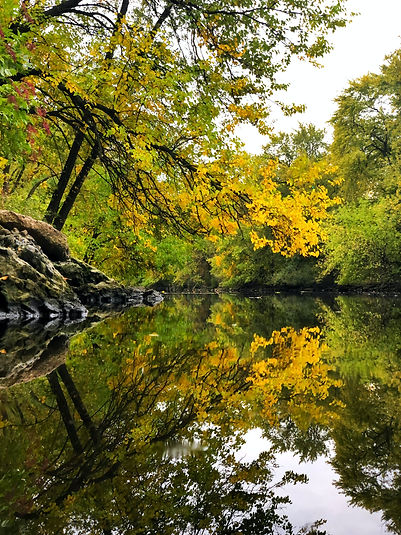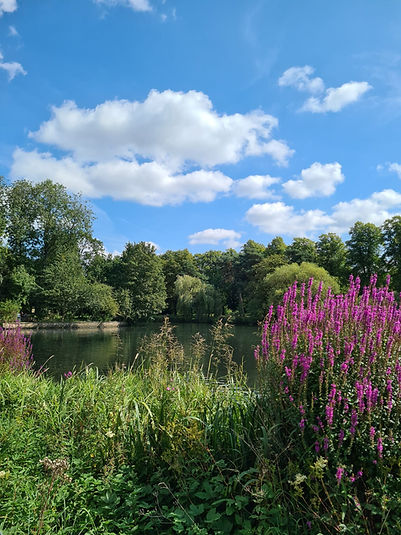
So what happens on a retreat?
A retreat is a period of quiet reflection in which you can deepen your relationship with God and your awareness of God’s presence and activity in your life. In laying aside the preoccupations of day-today living you are free to be inwardly still, and to think, feel and pray. Through the retreat you may have a sense of affirmation of how you are living, or you may feel challenged to make changes or new commitments.
Kinds of retreat
There are many different kinds of retreat. In led or preached retreats, for example, there are talks, given to the group as a whole; in activity or theme retreats prayer develops from work with paint or clay, observation of the natural world, or the like; in individually guided retreats there are daily one-to-one meetings with the retreat-giver. Different approaches suit different people: you may like to try several.


Silence
Most retreats are largely, or entirely, in silence: the people making the retreat do not talk with each other. Despite the lack of conservation, however, there can be deep sense of companionship. At mealtimes there is usually music.
Silence allows each person to go deeper in their reflections: to grow more and more attentive and receptive to the Spirit speaking within. In our busy, noisy world this can be a relief and a joy. Sometimes, though, it can also be uncomfortable: you may become aware of matters or feelings that you have been too busy to attend to.
Before committing yourself to a retreat for the first time, you may like to try out a shorter period of silence, perhaps by attending a quiet day. If at any time on a retreat you feel weighed down by your reflections, recall God’s love for you, remember too that members of the group are praying for one another, and feel free to arrange to talk with the retreat leader.
Worship
On a group retreat there will be periods of worship together. Juxtaposed with the solitude of silence, worship can bring a great sense of unity and a mutual care and support.
Making arrangements
Check that you know where you are going and how to get there. Note the telephone number for the retreat centre, for emergency contact. Clear your diary and settle everything before you go, so that you are free to relax into the retreat.
What to take
Find out whether there is anything you are asked to take. Take comfortable clothes, and weatherproof outdoor clothes and footwear. You may like to take a notebook. If you enjoy quiet creative activities such as art, knitting or tapestry, you may like to take the materials. A retreat is an opportunity to listen inwardly, and reading can be a distraction - be very sparing in what you take.


What you can do in the silence
Relax! You may like to rest and sleep. As you move around, use your senses - pay attention to the sights, sounds and smells. You may like to express any thoughts, feelings, perceptions or insights, in words (prose or verse) or in images (such as drawing, painting or clay). If you read, read only a little and then ponder the meaning of what you read, your reaction to it, and its significance for you. Activity is good if it deepens your retreat: if it starts to take over, set it aside. And of course you can also pray - for others, for yourself, or in quiet contemplative awareness, open to the Spirit. At the end of a period of prayer, look back over the prayer time and recall what happened. Notice what you felt, and especially anything that surprised you. You may like to record the details in a journal, so that you can go back to them later.
Being with others in silence
Silence is not an end in itself, but a means to inward recollection and stillness. If it is unfamiliar to you, you may feel selfconscious. This can happen particularly at mealtimes, and sometimes causes amusement, but there is no need to feel awkward or embarrassed. A simple quiet request (‘Sugar, please’) will be less disturbing for others than complicated ‘silent’ gestures.
Try to let go of any anxiety, and just relax in the quiet. Be sensitive to others, but behave naturally towards them. If someone smiles at you, feel free to smile back. In the silence, however, you will not know how each person is feeling, so if someone seems to be preoccupied or unaware of you, don’t take offence.
Talks
If there are talks, try to open yourself to them: let the words touch your heart and mind. Feel free to take notes, but let listening and responding take precedence. Try to be punctual for any group sessions: if everything starts on time everyone will find it easier to relax into the retreat. However, don’t feel you have to go to everything or conform to any expectations. Be open to your own needs and the leadings of the Spirit.
Feel free to approach the retreat-giver to arrange a conversation. Often there will be a list of times which you can book. Time will be limited, so think in advance what you really want to say, or ask.
Ending the retreat
The silence will usually finish some time before the end of the retreat, perhaps in time for conservation over the final meal. Before this happens, look back over the retreat. What have you experienced? Have you received or resolved anything? Is there anything you have decided to do? Is there anything about which you remain unclear, or for which you are waiting?


After the retreat
Back at home, daily life will quickly reimpose itself. If you have kept a journal, though, you will be able to remind yourself of the retreat: you might like to put a reminder in your diary to reread the journal in a couple of months’ time. You will need to find ways of integrating insights and commitments from the retreat into your ordinary living.
There will be opportunities to tell other about your experience. Be as open as you feel able to be, but recognise too that some moments or sensation may be too subtle or too personal to convey to others. At a later date you may wish to consider going on another residential retreat, making a retreat in daily life, or arranging ongoing spiritual accompaniment.
